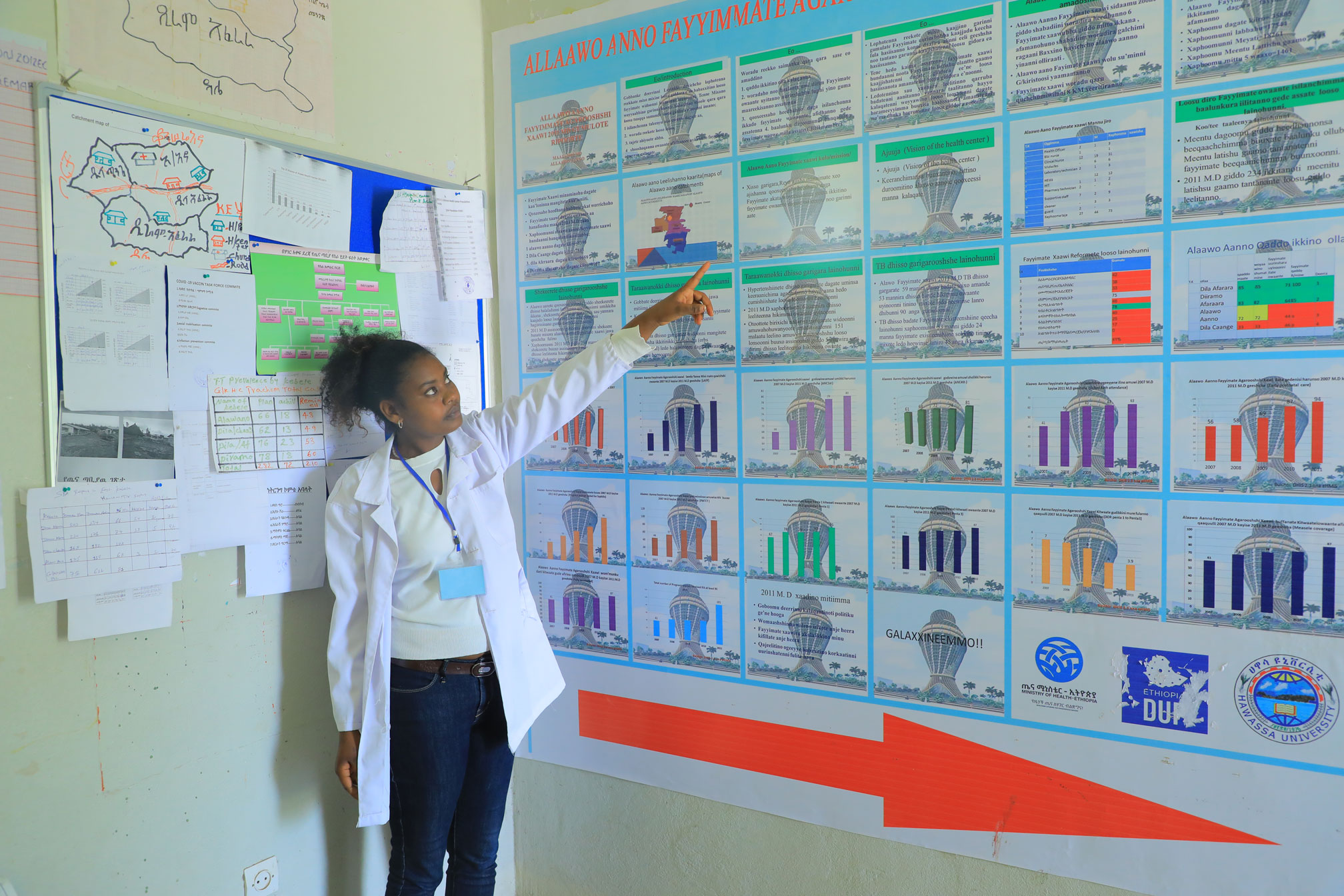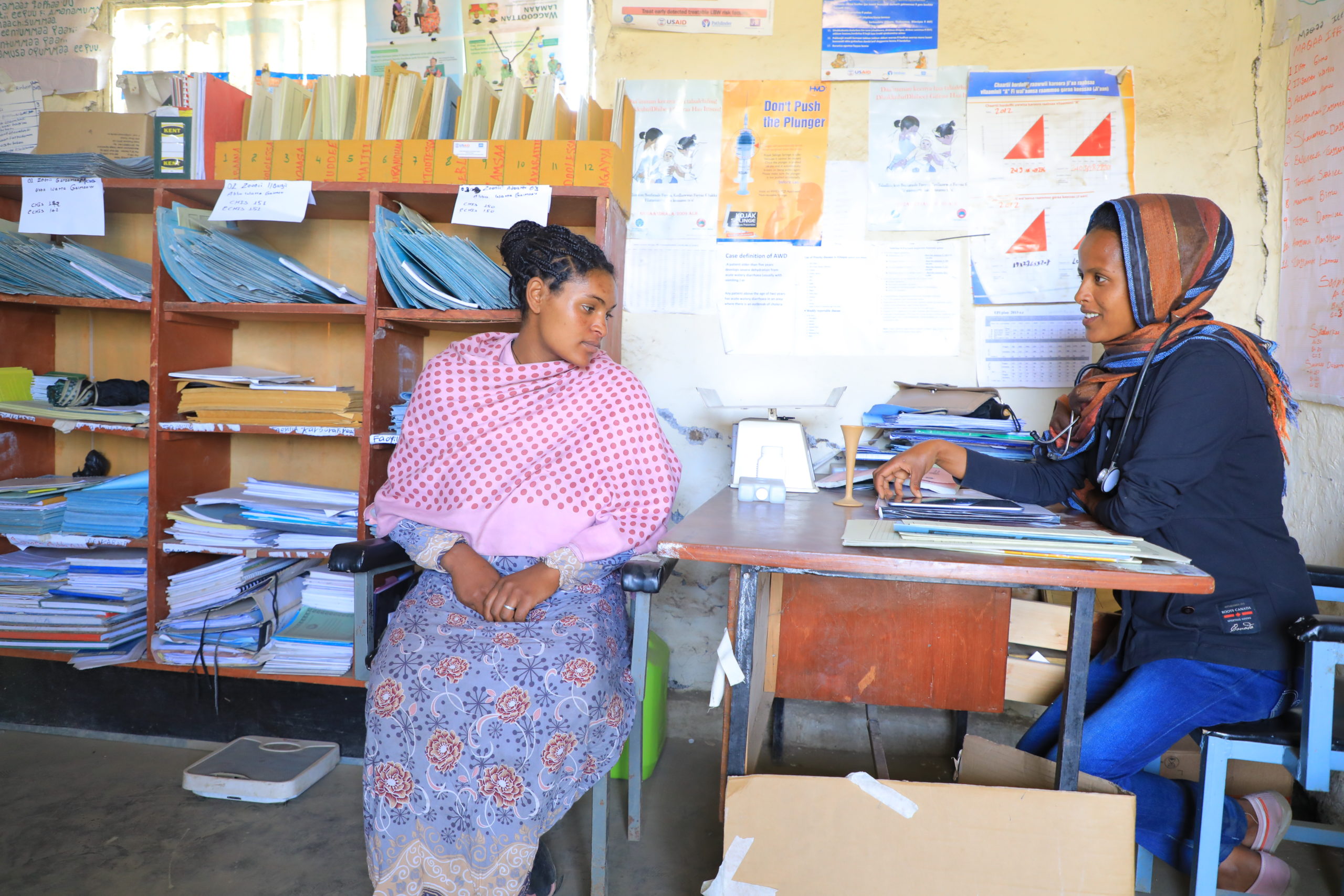Data Use
A vibrant data culture is integral to the Ethiopian Ministry of Health’s (MOH) Information Revolution agenda and DUP is focused primarily on cultivating and expanding data-driven practices across the country’s health system.
Empowering stakeholders at all levels of the health system to collect high-quality data and regularly use it for decisions that will strengthen Ethiopia’s health system and improve health outcomes is DUP’s one of the main objectives.

Our work includes capacity building and strengthening activities in partnership with the MOH, regional health bureaus (RHBs), and local universities in support of the Information Revolution implementation.
Some of the major engagement areas include:
- Ideation, conceptualization, socialization, and implementation of the Information Revolution’s model woreda strategy, which will ensure a functioning monitoring and evaluation (M&E) structure to produce high quality health information and data use for informed actions.

- Institutionalization of data quality review, monitoring, and feedback mechanisms through technical capacity building, making processes and systems available through standard operating procedures and manuals.
Creating routine data analytics and feedback practices by employing regular and advanced data visualization tools.
- Strengthening health information system (HIS) platforms for use of evidence, such as health sector planning, annual review meeting, performance monitoring teams, etc.

- Implementation of learning woreda and hospital initiative to test data use innovations that can be replicated at scale. Department-level data use practices, data days, accountability framework, incentive mechanisms, and integration of data use with quality improvement are some examples of tested innovations.
- Supporting the Capacity Building and Mentorship Program (CBMP), a program that creates industry-academia linkages to realize the information use culture. It is jointly implemented by the MOH, RHBs, and six local universities (Addis Ababa, Hawassa, Haromaya, Mekelle, Jimma, and Gondar).
- DUP assisted the CBMP design and inception to realize the HIS technical expertise, implementation science research, and project management systems of these local universities to ensure sustainability, local capacity, and ownership.
- Leading the development of the Ethiopian Simplified Version of International Classification of Disease 11 (ESV-ICD11) and the revision and implementation of Health Management Information Systems (HMIS) tools to standardize and address evolving data needs.